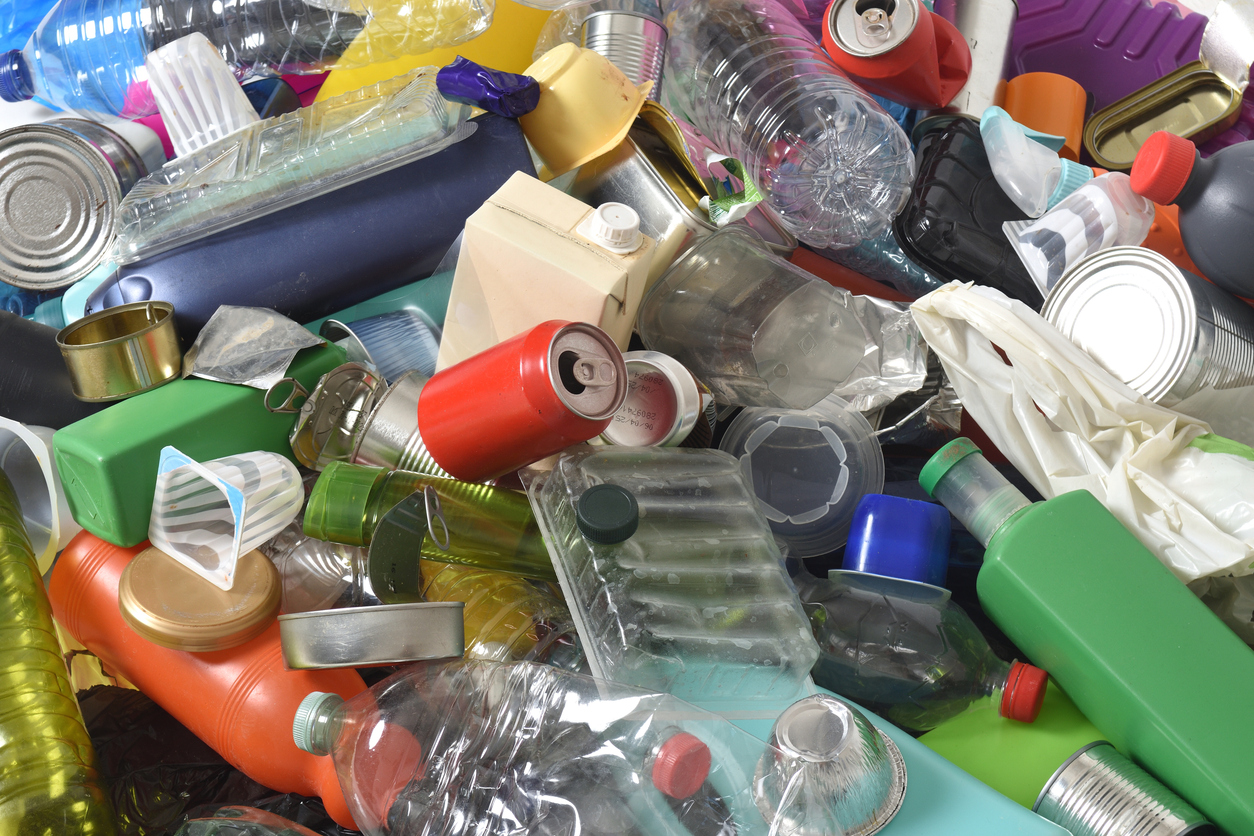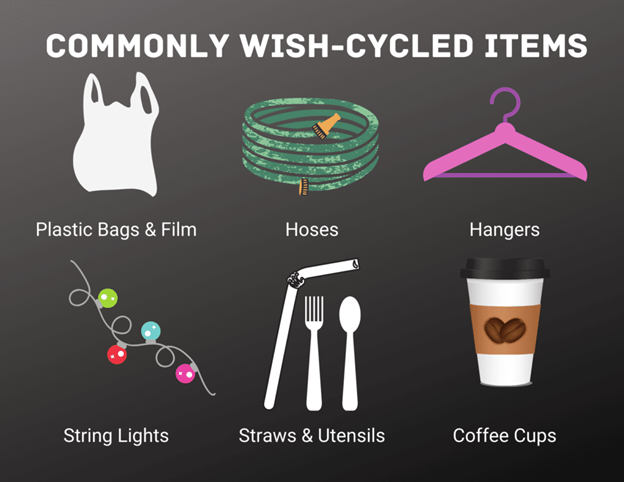Wish-cycling: The Hidden Contamination Threat in Commercial Recycling

Recycling has become a cornerstone of modern corporate sustainability programs. Businesses proudly promote their environmental commitments and invest in recycling infrastructure to reduce waste, appeal to eco-conscious consumers, and comply with regulations. But despite good intentions, many organizations are unknowingly sabotaging their efforts through a practice known as wish-cycling.
Wish-cycling occurs when people toss questionable items into the recycling bin under the assumption, or the hope, that they’ll get recycled. Unfortunately, this behavior often results in contamination, turning what could have been valuable recyclable material into costly waste.
For businesses, wish-cycling doesn’t just carry environmental consequences; it also impacts finances and brand reputation. This article explores why wish-cycling happens in business environments, the ripple effects it causes, and the practical strategies companies can adopt to stop it.
Why Wish-cycling is So Prevalent in Business Environments
Wish-cycling is rooted in optimism and confusion. Most employees want to do the right thing but aren’t clear on recycling rules. Without clear guidance, they assume items like coffee cups, plastic bags, greasy pizza boxes, or packaging materials should be recyclable and toss them in.
In business environments, this problem is amplified by:
- High traffic & turnover: Offices, retail stores, and restaurants generate constant streams of diverse waste.
- Lack of training: Recycling instructions are rarely part of employee onboarding.
- Complex packaging: Modern product packaging often mixes materials (plastic with foil, paper with wax coatings), making it harder to identify recyclables.
- Overconfidence in recycling systems: Many people assume the recycling facility will sort it out.
Source: https://stlcityrecycles.com/what-is-wish-cycling/
The Real Cost: How One Wrong Item Contaminates Entire Loads
The hidden danger of wish-cycling is contamination. A single non-recyclable item can compromise an entire batch of recyclables. For example:
- A greasy pizza box can cause nearby paper and cardboard to be unrecyclable.
- A plastic bag can jam sorting equipment, halting operations at a materials recovery facility.
- A half-full soda bottle can leak liquid onto otherwise clean recyclables, sending them all to the landfill.
For businesses, contamination drives costs in two ways:
- Hauler penalties: Many waste management companies impose fees for contaminated loads.
- Increased disposal costs: Once recyclables are deemed unusable, they’re treated as trash – leading to higher landfill expenses.
According to the Recycling Partnership, contamination rates in U.S. recycling streams average around 25% – meaning one in four items placed in recycling bins doesn’t belong there. For a large corporation generating thousands of pounds of recyclables each week, that translates into significant wasted money.
Employee Habits: The #1 Source of Contamination in Office & Retail Recycling
Most contamination in business settings traces back to employees and customers. Common examples include:
- Tossing disposable coffee cups (lined with plastic) into paper bins.
- Throwing food scraps or half-eaten lunches into recycling bins.
- Placing plastic film or shrink wrap in bins meant for rigid plastics.
- Recycling containers without rinsing them first.
In retail and food service, customer behavior adds another layer of complexity. When bins are poorly labeled, customers often treat them as general trash cans. This makes the recycling stream nearly impossible to control without active management.
Employee engagement and accountability are key. Without clear expectations, education, and reinforcement, even well-intentioned teams will contribute to contamination.
Simple Fixes: Signage, Training, & Waste Audits That Work
The good news is that wish-cycling is preventable. Businesses that prioritize education and system design can drastically cut contamination rates. Here are three proven strategies:
- Clear Signage:
- Use photos, not just text, to show what goes in each bin.
- Place signs at eye level, not just on bin lids.
- Customize signage for your specific waste stream (not generic recycling posters).
- Employee Training:
- Incorporate recycling guidance into onboarding.
- Run short refresher sessions or “green challenges” to reinforce good habits.
- Empower “sustainability champions” within departments to monitor and encourage compliance.
- Waste Audits:
- Conduct regular checks of bins to identify recurring issues.
- Track contamination trends over time and adjust signage or training accordingly.
- Share results transparently with staff to build accountability.
Companies that implement these fixes often see measurable improvements in waste diversion rates and reductions in hauling costs.
Conclusion
Wish-cycling may come from good intentions, but its impacts are costly and damaging. Businesses that ignore it risk sending recyclable materials to the landfill, paying avoidable fees, and undermining their sustainability credibility.
The solution lies in awareness, education, and structured programs that make recycling simple and foolproof for employees and customers alike. By taking proactive steps, and/or partnering with experts like National Waste Associates, companies can turn recycling from a liability into a genuine asset for their bottom line and their brand.
How National Waste Associates Helps Businesses Reduce Wish-cycling at Scale
For multi-location businesses, tackling wish-cycling requires a scalable, strategic approach. National Waste Associates (NWA) specializes in helping organizations streamline waste and recycling programs across all their locations through:
- Standardized training and signage deployed across locations
- Custom waste audits to uncover inefficiencies
- Hauler management to ensure compliance and reduce penalty fees
- Data-driven reporting to track progress and highlight ROI
NWA helps businesses reduce contamination, cut costs, and strengthen their sustainability commitments. By addressing wish-cycling at scale, companies not only avoid unnecessary expenses but also demonstrate leadership in environmental responsibility – building trust with employees, customers, and stakeholders.
Learn more about our waste & recycling services by
calling 888-692-5005 or sending us an
email at sales@nationalwaste.com



 BIC License #1496
BIC License #1496